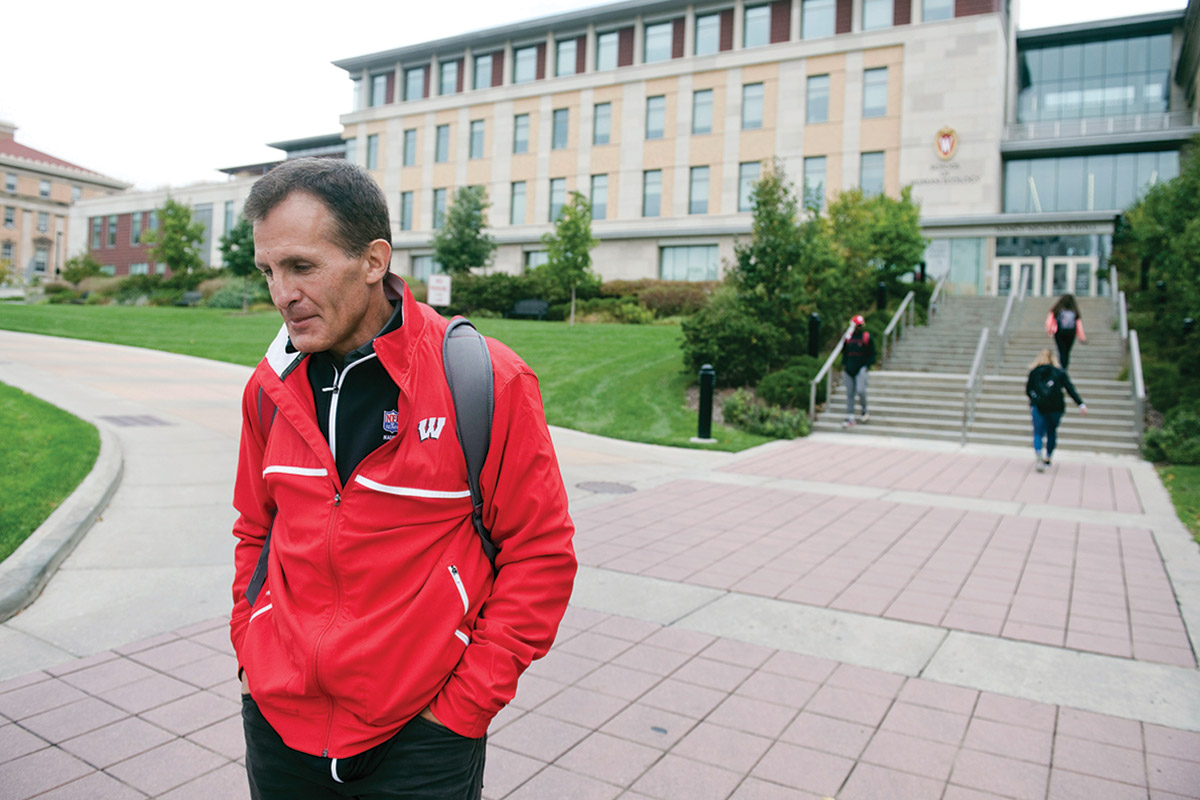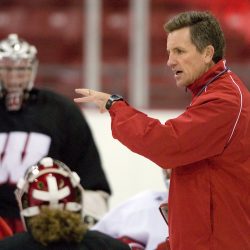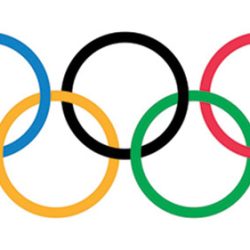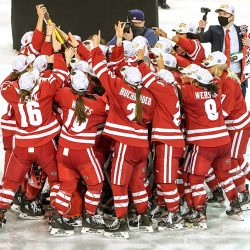All along, Wisconsin men’s hockey coach Tony Granato x’17 wanted to graduate from UW–Madison. But life — at least as a world-class hockey professional — got in the way.
International competitions forced Granato, the UW’s fourth-leading scorer of all time, to cut his course load as a student-athlete in the 1980s. Then, a 26-year career in the National Hockey League (NHL) — evenly split between playing and coaching — came calling. And with a growing family, enrollment in summer courses, which he did in his early NHL days, was no longer feasible.
Just 16 credits shy of graduation, Granato paused on his journey to a degree. Now, 30 years later, his job requires that he finish it.
Following a fifth season of unfamiliar mediocrity for the men’s hockey program, UW Athletic Director Barry Alvarez began the search for a new coach last spring. He casually reached out to Granato, whom he considered strictly an “NHL guy,” seeking a reference on candidates. But by the end of the conversation, Alvarez was encouraging Granato to apply for the job himself.
“A couple colleges called over the years to ask if I had any interest, but going to a different institution besides Wisconsin did not intrigue me,” Granato says. What did intrigue him was returning to his alma mater alongside two trusted associate head coaches: his younger brother Don ’93 and Mark Osiecki ’94, both of whom skated for the UW’s 1990 national championship team. “Then it was the greatest job in the world,” Granato says. “And that’s really how I feel.”
There was one condition, however. Head coaches must hold a bachelor’s degree at minimum — or earn one within an academic year — per NCAA rules. Granato got to work, enrolling in six courses over the summer, fall, and spring terms.
As he wraps up his major in human development and family studies (“I knew I was going to have a lot of kids,” he says), he’s noticed a few changes on campus.
“I was really nervous going to class the first time,” Granato says. “Everybody pulled out laptops to take notes, and I pulled out a pen and piece of paper. I thought, ‘I look a little strange.’ ”
Reliving the college experience has been an assist on the ice, too. Coaches can easily forget how much student-athletes are juggling. But Granato can relate to inevitable distractions, such as an upcoming exam, and tries to be more forgiving when a player shows less energy than usual during practice.
After years of waiting, Granato is finally ready to celebrate his graduation at commencement in May. But life — at least as a good father — could make that difficult, too.
“My daughter might be graduating a day apart at [the University of Colorado] Boulder,” he says. “I’m 100 percent going to be at hers. And if I can make it back for mine, I’ll be there.”




Comments
No comments posted yet.